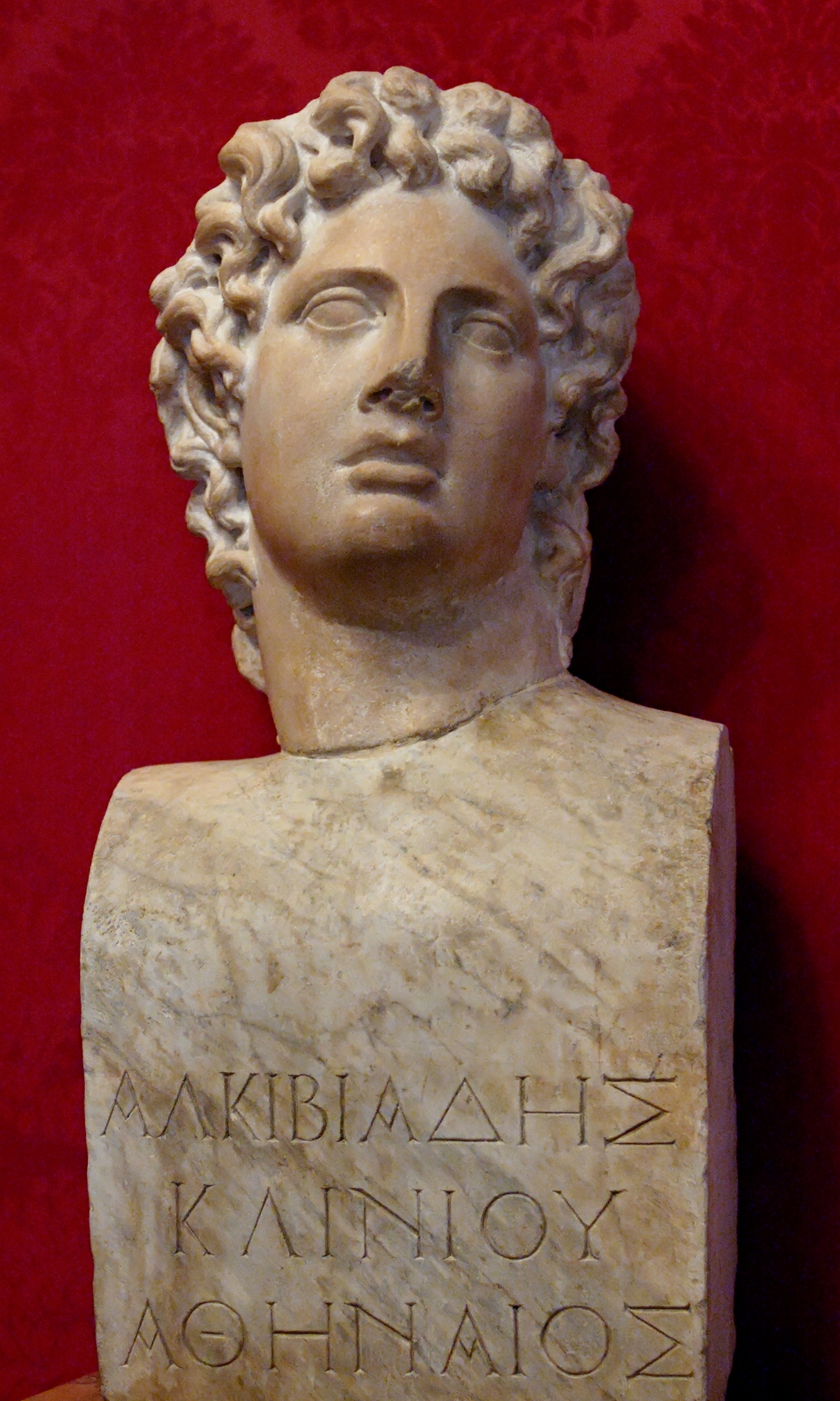After more than a quarter century of warfare with their
ancient rival Sparta, the whole of Greece became unified under Athenian
leadership. The two city-states had often been at odds while carrying a
begrudging respect for one another, particularly in their battles against
Persian invasion. At Marathon in 490 BC, Athens defeated a Persian landing
force in a downhill charge that annihilated the Persians before the Spartans
could arrive. Ten years later, at Thermopylae, the Spartan Leonidas led an epic
defense that stalled the Persian army while the Athenian general Themistocles
destroyed the Persian fleet at Salamis. Further allied victories against Persia
drove the empire back to Asia Minor.
The city-states grew in power, and their rivalry turned to
all-out warfare. They traded victories and defeats until both sides were
exhausted in 421 BC. Sparta and its allies had powerful land-based armies,
conquering Attica, the region around Athens, time and again. Each siege lasted only
a few weeks, however, as the Spartan army had to return to keep the helot slave population in check. Athens,
meanwhile, maintained a vast empire of islands through its democratically
supported navy. A peace treaty was
proposed and signed by Spartan general-kings and Athenian politicians, led by
the strategos (elected general)
Nicias. Both sides vowed to uphold it for fifty years. It took less than seven
years for the war to resume when Athens’s ally in faraway Sicily, Segesta,
called for military aid against Syracusan attack.
The young Athenian leader Alcibiades championed the campaign
to support them. Syracuse was the most powerful of the Greek colonies on
Sicily, a land rich with grain and trade. If they conquered it, the Athenians
could bring many other cities into their Delian League, perhaps enough to
overwhelm Sparta. He had supporters such as enthusiastic Lamachus, but others
opposed starting a new war, especially Nicias, who had prompted peace years
before. In an energetic speech, Nicias outlined the vast resources Athens would
have to expend to even attempt a conquest of wealthy, powerful Sicily. The
speech backfired, invigorating the assembly into voting to send those soldiers
and ships with hopes of seizing rich new colonies. Nicias himself was voted to
be among the commanders, along with Alcibiades and Lamachus.
Just before the fleet sailed, hermai all over the city were desecrated. Marker stones dedicated
to Hermes, god of luck and travel, were venerated in Athens as they not only
had religious significance but also established boundaries, gave directions,
and served as meeting places. Alcibiades and his cronies were blamed, primarily
by Nicias and others who opposed the brash young Athenian. Alcibiades requested
a trial to prove his innocence, but the request was denied.
Rather than wait and be recalled once his opponents who
stayed behind to have the ear of the assembly, Alcibiades threw himself into
his own trial. For hours, he debated with himself, waiting for his accusers to
appear. His theatrics did gather a crowd, and eventually a quorum determined
that he was innocent. His embarrassed political foes dropped the issue.
Upon arriving in Sicily, Alcibiades led the army, balancing
Nicias’s conservatism with Lamachus’s eagerness to attack Syracuse head-on. The
first battle in 415 BC proved a new stalemate as the Athenian infantry put the
Syracusans to retreat, but the massive Syracusan cavalry kept the Athenians
from pursuit. That winter, the Athenians completed a wall to siege the city,
making cavalry ineffective, and Syracuse surrendered. Using the victory to his
advantage, Alcibiades rapidly moved from city to city gaining allegiance from their
Greek leaders, first in Sicily and then in southern Italy.
Within a few years of campaigning and diplomacy, the
Athenian Empire had nearly doubled in size. Sparta’s position as leader of the
oligarchies of Greece waned, and more city-states followed the Athenian model
of populace-rule. Alcibiades masterminded a new war with Sparta, baiting them
into an attack that was painted as imperialistic to the other Greeks. After the
defeat and forced installation of democracy into Sparta, the first great threat
to Athens came from the north as expansionistic Macedonians marched. Using the
full weight of its empire, such as effective Sicilian cavalry, Athens countered
the Macedonian assault and turned it into a client state.
In the coming century, Athens would face other incursions
from growing powers. Romans from central Italy threatened allies in the south,
requiring counterattacks again and again. Athens also faced rivalry in Sicily
from growing Carthaginian influence, which prompted the outright conquest of
the once-Phoenician colony. Persia continued its rule in the east, regularly
fighting over cities in western Asia Minor with large Greek populations and
losing Egypt after a rebellion with Athenian support. For centuries, Athens
served as a political and intellectual capital of the world, attracting
geniuses such as Archimedes and Hiro. Ultimately decadence caused the
democratic Athenians to collapse, leaving a power vacuum in the Mediterranean
that would last until Hunnish invasion.
--
In reality, Sparta won the Peloponnesian War. Alcibiades left
without having a trial and was recalled immediately upon arrival. He fled out
from under arrest and made his way to Sparta, where he served as a military
adviser recommending reinforcement of Syracuse. The Athenian expedition to
Sicily proved to be ruinous, devastating Athenian manpower and money just as
Nicias had feared and ultimately leading to Spartan superiority in Greece.
Alcibiades later returned to Athens, then to Persia, then back to Athens, and
finally was slain in Thrace surrounded by mistresses. Spartan domination of
Greece rapidly declined over the next decades, ended in conquest by Macedonian
king Philip II, father of Alexander the Great.

No comments:
Post a Comment